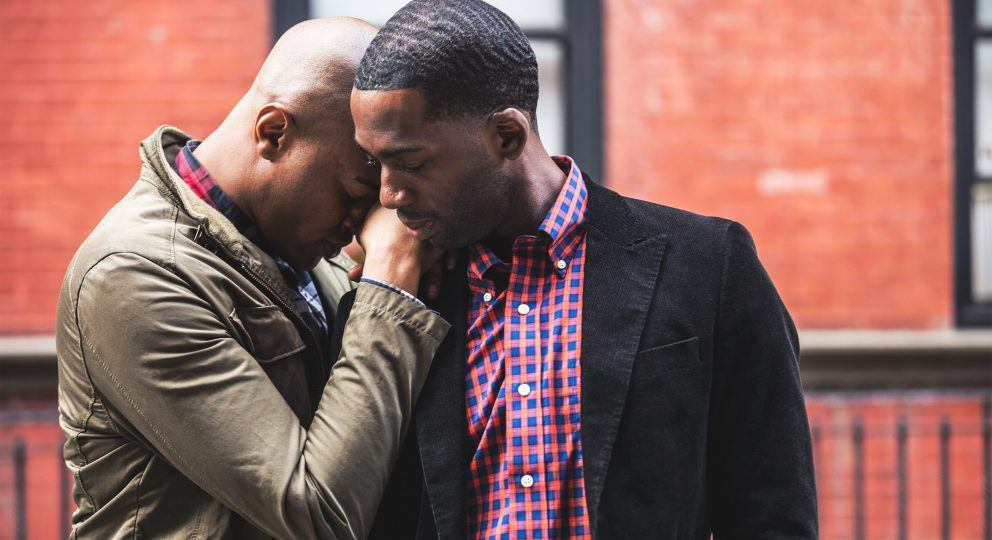Last year, we had an unusual, unprecedented amount of situations to grieve. In the U.S. especially, the political divide deepened; lost jobs resulted in lost wages, and broken and estranged relationships dampen the pressured holiday cheer. Most evident due to the pandemic, countless people are grieving the loss of loved ones, parents, siblings, grandparents, spouses, close relatives, and friends. Many families and communities were hit by multiple losses. The grief is complicated by the fact that many did not get to say goodbye to their loved ones or be with them at the time of their death. Thousands died in nursing homes or in hospital rooms in isolation. In many cases, families could not gather for wakes or funerals to mourn their loved ones and to support each other.
How do we begin to understand and respond to such grief?
In her 2017 published article, Phyllis Kosminski of the Center for Hope/Family Centers describes grief, at its most profound and painful, as “a rogue wave of despair, yearning, and desire for union.” Grief is not just a one-time rogue wave: it is ongoing and “the wave rises from one day, and even one moment, to the next.”
Various writers and theorists described stages, tasks, phases, processes, and dimensions of “normal” healthy grieving for children, adolescents, and adults who experienced the death of a loved one. Some theorists described task-based models for a healthy grieving process. According to therapist Thomas Dalton and professor Robert Krout, these tasks include understanding and accepting the reality of death, working through and bearing the emotional pain of the loss, and adjusting and resuming life without their loved one. Psychologist John Bowlby noted four phases of mourning including a numbing and denial of the reality of the loss; yearning for the loved one; intense emotions including sadness, anger, despair, and hopelessness; and a reorganization where new bonds with others are formed.
Grief has five stages: denial, anger, bargaining, depression, and acceptance, first posited by Psychiatrist Elisabeth Kübler-Ross in 1969 in terms of death and dying and again in 2005 in terms of grief and loss. In the denial stage, people believe that their loved one has died, but their denial is symbolic in that they cannot believe that their friend or family member will not, for example, call to say hello or return from work at a certain time. In the anger stage, a person’s anger is directed at the person who died or at oneself for being unable to prevent his or her loved one’s death. In the bargaining stage, people slip into a “what if” or “if only” mindset wherein they believe that they may have controlled and thus prevented their loved one’s death. In the depression stage, people allow themselves to feel the pain of the loss and can begin the process of healing. Finally, in the acceptance stage, people recognize the current state of their lives without their loved one as the reality and can live with that understanding.
In his 1983 book “Helping Children Cope with Grief,” Alan Wolfelt wrote on dimensions of children’s grief, including a lack of feelings, shock, denial, numbness, emptiness, sadness, guilt, fear, self-blame, acting out behavior, explosive emotions, disorganization and panic, the big man/woman syndrome (i.e., the bereaved child taking on adult roles previously held by the deceased), physiological changes, regression, and reconciliation.
There is tremendous variability in people’s ability to cope with and adjust to the death of someone close to them. One of the key factors is the constellation of beliefs that includes a mourner’s thoughts about the person who died, their reflections on the relationship with that person, and their assessment of their own ability to survive, in a practical or even literal sense, without the deceased.
How can you help?
How, then, can you help children, adolescents, and adults in their grief? First, by being present to them and helping them to bear the emotional pain of their loss. Second, be cognizant of the stages, tasks, phases, processes, and dimensions of grief that they may experience. Third, listen to them process their thoughts and feelings about the person who passed, their relationship with that person, and their ability to survive without them. Lastly, validate and support with empathy the full range of their emotional expression regarding the loss.
Grief may feel like a rogue wave that rises from one day, or even one moment, to the next, but together you can help each other ride out the wave and sail to a calmer sea.










